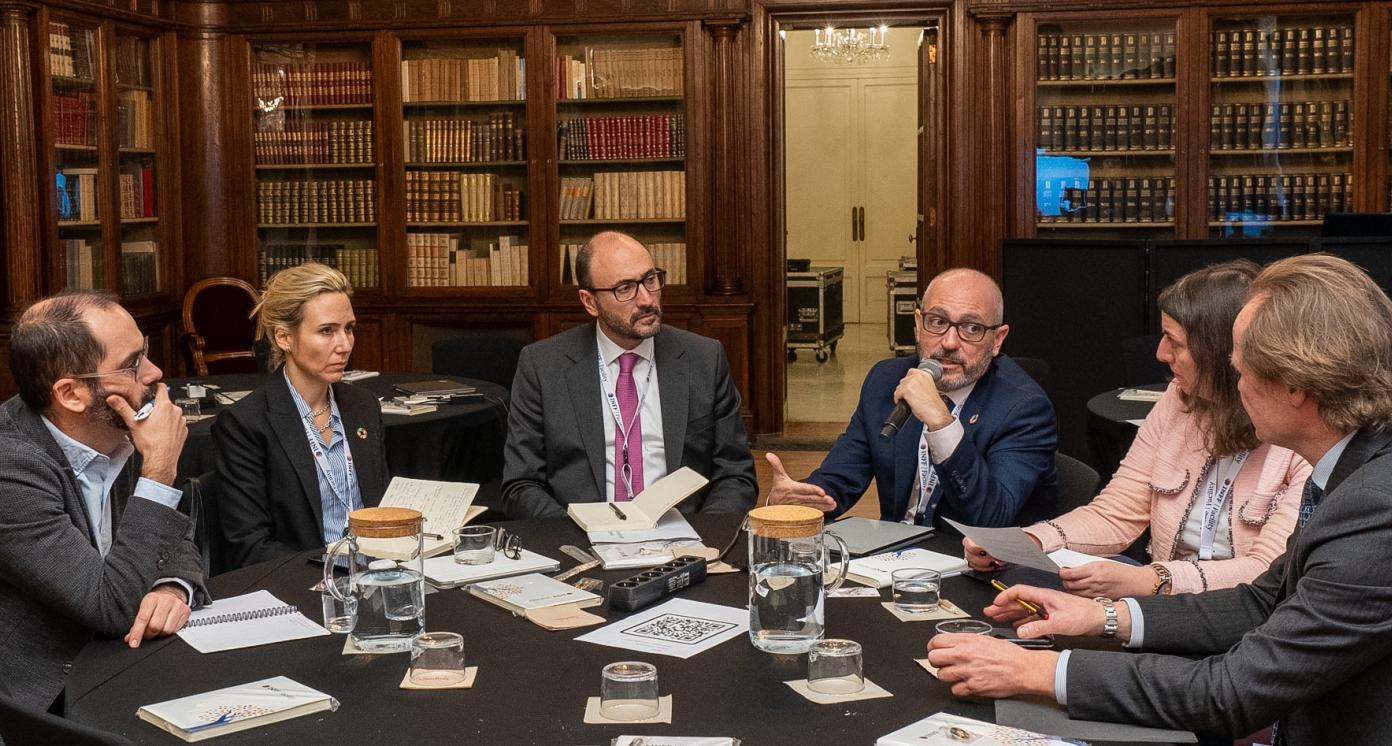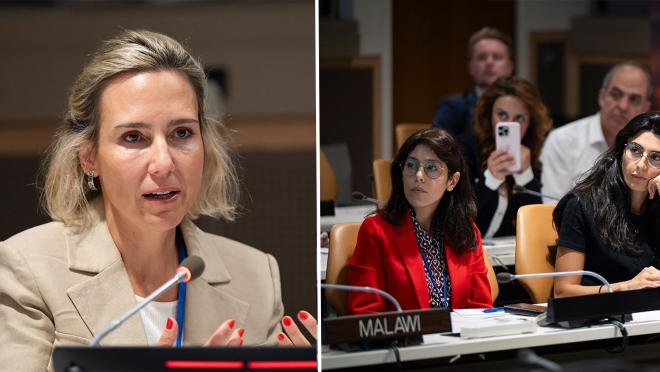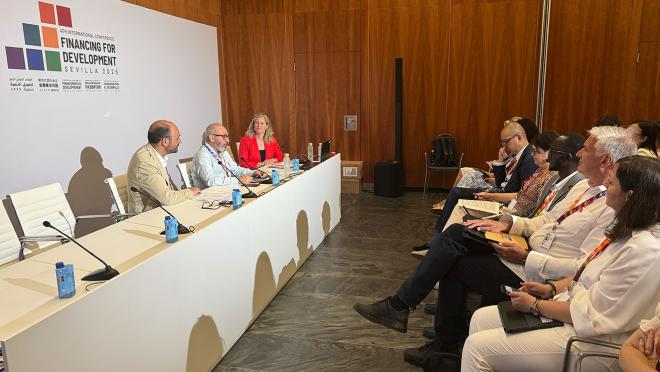A blog post by Dr. Şebnem Şener, Head of Private Finance for the SDGs, UNDP's Sustainable Finance Hub. Originally published January, 30, 2025.
The USD $4.2 trillion annual financing gap for achieving the Sustainable Development Goals (SDGs) isn’t just a number—it’s a challenge that demands action and innovation. Although important, bridging this gap requires more than mobilizing private capital. It calls for rethinking how organizations measure progress, manage their impact, and turn sustainability ambitions into meaningful results.
At a UNDP and International Organization for Standardization (ISO) technical working session during the Integrated National Financing Framework (INFF) Facility Partner Meeting in Barcelona on January 22, representatives from the private sector, government, and international organizations came together to address this challenge head-on. Participants explored practical tools, including the ISO/UNDP Guidelines for the SDGs and the forthcoming Management System Standards (MSS), and agreed on a roadmap leading to the Fourth International Conference on Financing for Development (FfD4) to be held in June in Seville.
These tools are designed to make sustainability actionable for organizations of all sizes. They move beyond pledges and traditional financial metrics, equipping businesses with the frameworks they need to measure, manage, and maximize their contributions to sustainable development. Good data doesn’t just tell us what is—it shows us what could be. It makes invisible markets visible, hidden risks manageable, and untapped opportunities actionable.
Through the ISO/UNDP partnership, we’re building the foundation for practical, scalable solutions. These tools are practical because ISO standards are already widely used by organizations around the world. For example, ISO 9001—focused on quality management—has more than one million certificates issued to organizations in 189 countries, making it the most widely used quality management standard globally.
If the forthcoming ISO/UNDP MSS for the SDGs achieve similar adoption, they could drive transformative change by standardizing practices and ensuring that what works locally can scale globally. This is particularly important as businesses navigate increasing complexity in their operations, from climate risks to evolving stakeholder expectations.
Leadership at the Heart of Change
Tools and frameworks alone are not enough. The discussions in Barcelona highlighted the need for leadership—businesses, investors, and governments willing to act as champions for sustainability. These leaders are demonstrating that aligning with the SDGs is not only achievable but also essential for building resilient organizations and fostering innovation.
Early adopters have the potential to demonstrate how comprehensive sustainability management can drive change across entire sectors. For financial institutions, whose investment decisions shape economies, the potential impact is transformative. Redirecting even a small fraction of global investment capital toward sustainable development could drive meaningful progress and close the financing gap.
The ISO/UNDP Guidelines and the upcoming MSS build on five years of pioneering work with the SDG Impact Standards. These tools address a key challenge for businesses: translating sustainability commitments into daily decision-making. By enabling organizations to map their impacts, identify risks and opportunities, and align their operations with global development goals, they provide a pathway to long-term value creation.
As part of the Financing for Development (FfD) agenda, the ISO/UNDP partnership directly responds to two key calls outlined in the zero draft outcome report for FfD4: the call for greater impact integrity and the call for standard setters to align financial systems with sustainable development objectives. By equipping organizations with actionable, scalable frameworks, such as the ISO/UNDP Guidelines for the SDGs and forthcoming MSS, we are contributing to this vision. These tools advance global efforts to ensure sustainability becomes a cornerstone of financial decision-making and provide practical mechanisms to integrate impact into core business strategies, answering the urgent need for innovative and trustworthy solutions in the financial system.
Momentum Toward Action
The technical working session in Barcelona underscored the need for greater collaboration across sectors. While tools like the ISO/UNDP Guidelines and the MSS will provide critical support, their success depends on businesses, investors, and policymakers committing to integrate sustainability into their decision-making processes.
Building on the outcomes of Barcelona, the roadmap toward FfD4 in June 2025 offers an opportunity to scale effective solutions and operationalize proven practices. The ISO/UNDP partnership will continue advancing these efforts, ensuring private sector engagement delivers measurable and meaningful results.
The frameworks being developed are designed to empower organizations to act with confidence and purpose. By embedding sustainability into core business strategies, every investment decision, every policy, and every partnership has the potential to drive measurable impact, unlock new value, and deliver long-term benefits for profit, people, and the planet. Together, these efforts can help close the SDG financing gap and create a future defined by opportunity and shared responsibility.


















